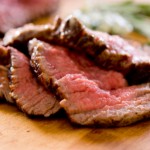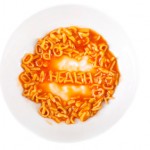In my my previous post, I talked about my own dieting program, but mentioned a very recent article in the Journal of the American Medical Association, typically called JAMA. I came across a newspaper article on this research study while reading The Wall Street Journal . Now I want to analyze the JAMA article. Let me give you a quick overview and then I'll tell you what bothers me about the implications.
Three groups of relatively young people (18 to 35) were fed extra calories with varying amounts of protein while living in a special metabolic unit. They all gained weight, but those fed a low-protein diet gained less. That group increased their total body fat just like the others did, but did not gain "lean body mass" (that's anything but fat: i.e., bones, organ weight and muscles), while those on a normal protein intake and those eating more protein than usual gained not just fat, but also muscle mass. So calories count more than composition of a diet, but extra calories with too little protein leads to weight gain that's all fat (90% of those surplus calories formed fat; 10% went into the energy necessary to do so).
Okay, that's the classic comic version. Let me dissect the study and its conclusions a bit more.
This was a relatively short-term study of what happens when people overeat. The extra calories the subjects ate were in the form of fat. It was also a small study with only twenty-five subjects who were healthy non-smokers, weren't allowed alcohol or caffeine and had stable weights to begin with. They varied from quite lean to overweight, but none of them were obese. It was a "single-blind" study, that usually translates to meaning a study in which either the investigator or the participant, but not both of them, is unaware of the nature of the treatment the participant is receiving; in this case only the kitchen staff knew who was in which diet group.
The research was exceedingly well done with careful methods, an inpatient ward for the study subjects, a preliminary period where diets were adjusted to keep their weight constant, and lots of state-of-the art measurements of how much fat and how much muscle each person had before and after the eight-week diet.
So far, so good: eating too much makes you gain weight; lots of that weight is fat. Eating more protein tends to add muscle (I can't see that their bones got heavier or the basic weight of their organs, though they likely accumulated some fat).
All that makes sense to me; now how does that apply to dieting? I think it likely does, but that's not what this study was designed to show. The question that remains is what should I eat if I want to lose weight? I just found an article in The Telegraph (a London paper I never read otherwise). The title was "Vegetarian low protein diet could be key to long life."
Unfortunately, the study was done in fruit flies. The lead author said "...similar results have been found in mice." Thus far a variety of studies in animals imply we can live longer by eating less. I'll accept that, but for now, until there are large-group human studies, I'm sticking to reasonable amounts of protein and less overall calories.





